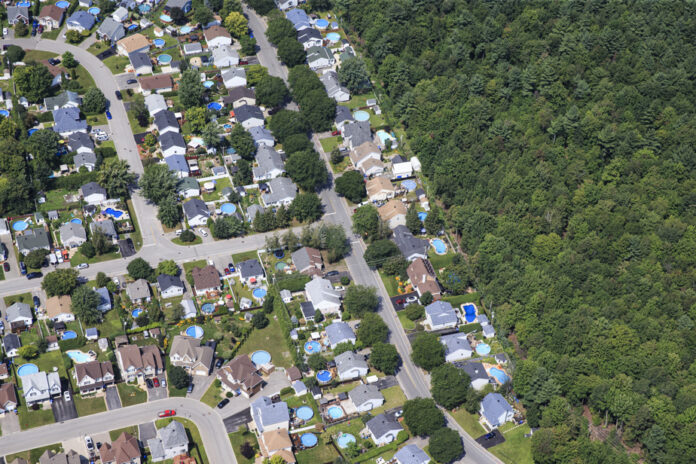Will the spring of 2023 be that of the shift in land use planning? If there are dozens of us today, from all areas of expertise and from civil society, signing this text to urge the government to act up to the challenge, it is because certain signals are not reassuring. . Although most of the principles of sustainable land use planning can be found in the strategic vision of the policy adopted last June, we expect to see them permeate into government discourse and especially into its actions.
The challenges of our time are almost all related to the organization of our living environments. Heavy energy balance, shortage of housing, biodiversity crisis, destruction of heritage and trivialization of landscapes, vulnerability to climatic risks, pressure on agricultural land, deterioration of the physical condition of children: all this is partly due to an organization territorial very far from being optimal.
Whatever the problem, land use planning is part of the solution.
If the government has fully grasped the magnitude of the challenge and the urgency to act, it must present a policy implementation plan that supports, integrates and generalizes the necessary shift in public policy.
Both in planning and construction, we must propel exemplary projects throughout Quebec. Because if it will allow, in the long term, substantial savings, the transformation of practices also implies investments. For example, to decontaminate strategically located land, transform buildings, redevelop streets and develop public and active transportation.
To see the multiplication of eco-neighbourhoods and flourishing main streets, and thus respond to the housing crisis and the climate crisis at the same time by creating complete living environments, we must massively fund projects that contribute directly to the objective of policy: more sustainable land use planning. The absence of such incentives, widely demanded, would constitute a real rebuff.
All departments and agencies make decisions that will be firmly rooted in the territory. A real exemplarity of the State and the development of a reflex of territorial coherence, in all sectors and at all scales, are essential to the success of the policy.
Let us think of the location of the future hospital in Gatineau, where local mobilization made it possible to avoid what promised to be a monumental error, by reminding the government of the importance of a central location accessible by public transport.
Moreover, among the keys to success, it is necessary to increase the integrated planning of two concepts that have in the past been too often treated in silos, namely development and transportation.
Strong government leadership is needed: the issues are too collective to rely solely on the sense of responsibility in each of Quebec’s communities. In addition, as several municipal stakeholders have pointed out, municipalities are in competition to attract new families, new jobs, businesses, etc.
With the implementation plan of the national policy, it will be necessary to act quickly, effectively and everywhere. Revising the Act respecting land use planning and development is, in this regard, a relevant avenue. But to bear fruit, this legislative revision cannot and must not be limited to a simple refreshment of procedures. The new law will have to make real changes in practice mandatory. The same goes for government guidelines in land use planning.
Hurry up. Each month of delay amounts to getting bogged down more deeply in an energy-intensive mode of development, consuming resources and territory and harmful to health. All that we are still building according to the old model increases our environmental and social deficit and adds to the sum of the problems that we will have to solve next.
Over the past 24 months, thousands of us have been “talking territory”, trusting that the government would have the courage to act. Now is not the time to lower the bar. The mountain cannot give birth to a mouse.


















